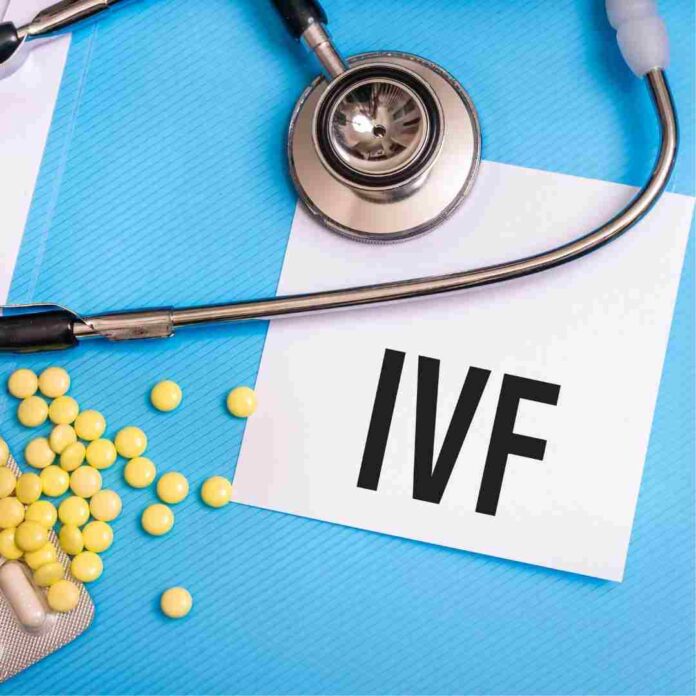A lot of infertile couples have been aided by the commonly utilised assisted reproductive technology known as in vitro fertilisation (IVF) to accomplish their dreams of becoming parents. Prior to being put into the uterus, an egg is fertilised outside of the body, in a laboratory dish, using IVF. The age of the female having IVF therapy is just one of many variables that affect the treatment’s outcome. We shall examine the IVF success rates by age in this post.
One of the most important elements influencing IVF success rates is age. As women become older, both the quantity and quality of their eggs decrease. The decrease in IVF success rates in older women is largely caused by this loss in egg quality.
IVF Success Rates Per Age
IVF success rates per age are measured in terms of live births per cycle started. This means the number of cycles that resulted in a live birth, divided by the total number of cycles started. The following are the average IVF success rates per age:
A woman’s chance of having a live birth after egg retrieval varies greatly depending on the age of the person undergoing IVF (as well as other factors such as their specific fertility issues as well as the IVF clinic performing the treatment). In general, the success rate of IVF decreases significantly with age.
Key points to remember
- Women under 35: A woman under the age of 35 has a 54.5% success rate per egg retrieval. This is the highest success rate of all age groups. It is because women under 35 tend to have a higher number of good-quality eggs and are less likely to have underlying health conditions that may impact their fertility.
- Women between 35 and 37: Live birth rates per egg retrieval are 41.1% for women between 35 and 37. This age group experiences a slight reduction in fertility due to the ageing process, and the quality of their eggs may start to decline.
- Women between 38 and 40: For women aged 38 to 40, the percentage of live births per egg retrieval is 26.7%. At this age, the number and quality of a woman’s eggs begin to decline more rapidly, and the risk of chromosomal abnormalities in the embryos increases.
- Women between 41 and 42: For women aged 41 to 42, it is 13.8%. Women in this age group have a significantly reduced ovarian reserve and a higher likelihood of chromosomal abnormalities in their eggs, which can impact embryo development.
- Women over 43: The percentage of live births per egg retrieval for women aged 43 and up is 4.2%. At this age, the ovarian reserve is severely depleted, and the quality of the remaining eggs is low. The chance of a successful pregnancy declines sharply, and the risk of miscarriage and genetic abnormalities is high.
Factors That Affect IVF Success Rates
While age is a significant factor that affects IVF success rates, there are other factors that also play a role. These include:
- The quality of the eggs & sperm: The quality of the eggs and sperm used in the IVF process is crucial. Good-quality eggs and sperm are more likely to result in healthy embryos, which have a higher chance of developing into a successful pregnancy.
- The number of eggs retrieved: The number of eggs retrieved during the IVF process can impact success rates. More eggs mean a higher chance of finding a healthy embryo for transfer.
- The embryo transfer technique: The technique used to transfer the embryo can also impact IVF success rates. A skilled and experienced embryologist can improve the chances of successful implantation.
- Underlying health conditions: Certain underlying health conditions, like endometriosis or polycystic ovary syndrome (PCOS), can impact fertility and reduce IVF success rates.
Final Thoughts
It’s a good idea to seek medical advice or go for IVF treatment it’s important for you to choose an IVF center that is reputed where the doctor can help evaluate your fertility and provide guidance on the best options for achieving pregnancy. Thus IVF is an effective treatment option for couples struggling with infertility. However, the success of IVF depends on many factors, including the age of the woman undergoing the treatment. Women under 35 have the highest success rates, while women over 42 have the lowest success rates. It is essential to consult with a fertility specialist to understand your individual chances of success and to discuss any underlying health conditions or other factors that may impact your fertility. It is important to remember that IVF success rates are not a guarantee, and each individual’s circumstances are unique.
Additionally, it is crucial to understand that IVF can be emotionally and financially taxing. The process can involve multiple cycles, which can be expensive and time-consuming. It is important to have a support system in place and to consider the emotional impact of the process on yourself and your partner.
Ovarian reserve and egg quality deteriorate with age in women, which results in a decline in the success rates of IVF. However, additional elements like the sperm and egg quality, the quantity of retrieved eggs, and underlying medical issues might significantly affect success rates. It is crucial to speak with a fertility specialist to learn about your unique odds of success and to take into account the psychological and financial effects of the procedure. IVF can be a successful choice for couples who are battling with infertility with the correct support and care.








